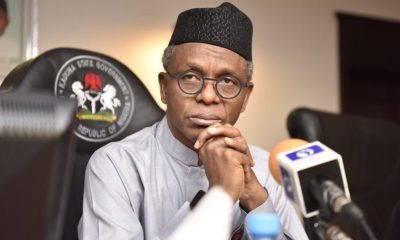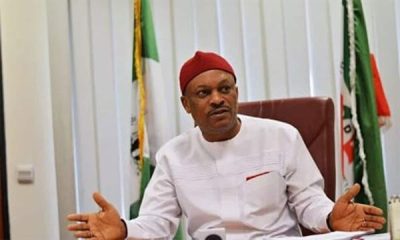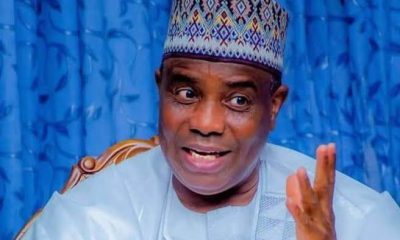Politics
See The Reason Why Podar Dragged APC To Court

Johnson Podar, the National Director of Mobilisation of the Buhari Campaign Organisation, has dragged the Plateau State chapter of the All Progressives Congress, to court over alleged misconduct during the party’s state congress.
The case which was filed by Podar at the state High Court, Bukuru, Jos South LGA, is seeking that the congress which was conducted in the state which brought the current executive council into office be canceled as it is not conducted according to the party’s stipulated guidelines.
He had claimed that he showed interest in contesting for the state chairman seat, and paid the N100,000 fee for the nomination form.
Podar revealed that after submitting the nomination form, he embarked on campaigns for the election, but was not allowed to contest for the seat.
“When we convened at the congress venue on May 19, 2018, the chairman of the state congress said that two persons were contesting for the post of state chairman, but that the person contesting against the incumbent chairman, Mr Dabang Letep, had been disqualified because his name is not in the APC register.
“Summarily, he proceeded to call Letep to stand before the congress as the sole contestant.
“I repeatedly raised my hand to observe a point of order but was not given audience to be heard on the matter,’’ he claimed in the affidavit.
He further revealed that he stood up publicly to protest his disqualifiation, while showing his party’s membership card with registration number 11249, to confirm that he was a registered member of APC.
He stated that his plea fell on deaf ears, stating that there was no reason for his disqualification since his nomination form was endorsed by APC officials in his Fier Ward.
Podar revealed that he was forced to leave the congress venue as the officials had made up their minds to sideline him.
He took the opportunity to call on the court to nullify the congress in the state and declare the existence of the state working committee a nullity.
“If the court finds that the congress was not done rightly, it means that any action undertaken by the benefiting executive members since they were sworn in, including the primary elections they conducted, should be declared a nullity,’’ he averred.
When the case came up for hearing, Podar’s Counsel, Samuel Abba, restated that his client was wrongfully disenfranchised.
Abba, however, explained that he had been served with a counter affidavit and a notice of preliminary objection challenging the jurisdiction of the court to hear the matter.
He quoted the defendants as saying, in the preliminary objection, that the matter was a “domestic affair’’ and the court had no right to delve into the affairs of a political party.
In his reaction to such claims, Abba said that if the court could pronounce on issues of husband and wife, which was more domestic, there was no reason to stop it from making pronouncement on political party issues that were even more public.
He said that he had filed a response to the objections, and that the defendant had sought for more time to respond to it, and had been obliged by the court.
In his argument, Counsel to the defendants, Chindak Dakas, reaffirmed the position that the court had no jurisdiction to entertain the matter on the basis that it was purely an internal affair of the political party.
He also pointed out that INEC, which was a necessary party on all electoral matters, was not joined in the case.
Dakas said that the party needed time to respond to the plaintiff’s reaction to the preliminary objection.
Meantime, after listening to both sides, Justice Ishaku Kunda, adjourned the matter to February 7, 2019, for further hearing.












